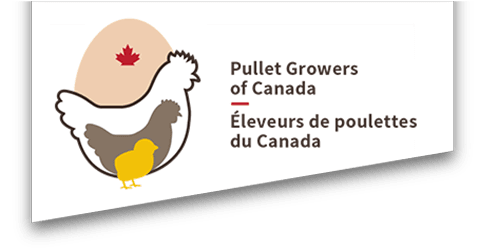EFC reaches out to pullet farmers to improve the Code of practice
The Code of Practice for the Care and Handling of Pullets and Laying Hens (“the Code”) requires minimal feed space for each bird in pullet barns. However, scientific information on pullet rearing practices, including feed space, is very limited. With the Code being up for a five-year review, Egg Farmers of Canada (EFC) is launching a project to collect information on pullet feed space using outcome-based measures, to better understand the welfare impacts of the Code requirements.
What are outcome-based measures?
Animal welfare can be assessed using 3 types of measures: animal (outcome) based; resource (input) based and management based. Outcome based measures (OBM) are direct assessments of the state or condition of an animal, to determine how an animal has coped with inputs from its environment, or management practices.
The National Farm Animal Care Council (NFACC) provides more details about OBM in its Framework for Developing Animal Care Assessment Programs.
The project’s goals
With this project, EFC aims to collect information on common practices with respect to feed space in pullet barns, in relation to Code requirements for feed space. Participants will be asked to collect the following OBM at two different ages (between 6 and 8 weeks of age and between 16 and 18 weeks of age):
- Feed consumption
- Water consumption
- Body weights
- Body weight uniformity
- Mortality
The project aims to recruit 40 pullet farms across the country to participate. These farms will receive a package from EFC containing an overview of the project as well as records to complete for the study. This project will take place between February and August 2023.
PGC fully supports this project, which will provide important information about the impact of the actual Code, and help industry partners in identifying the amendments to prioritize in the upcoming review.
For further information, please contact Elyse Germain at EFC (egermain@eggs.ca).
